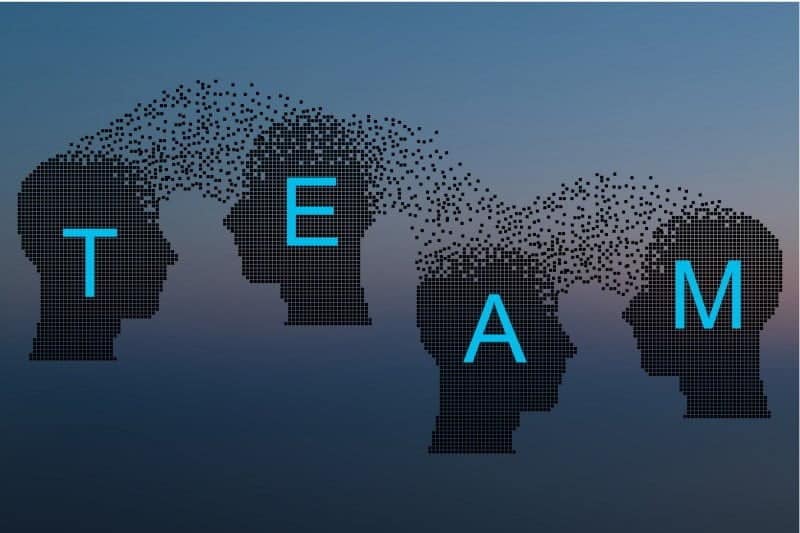What knowledge is real?
How do you know that what you know is real? How do you know that what you hear or read is fact? It is only through applying and experiencing the knowledge do we ascertain its veracity and accept its viability.
Table of Contents
ToggleKnowledge is inherent in many ways and in organizations, it springs from conversations across multiple channels whether one-on-one or from the flow through groups of people. The one certainty is that knowledge has been shared but not necessarily captured or actioned.
“Knowledge emerges from our collective experience while
connecting people to content and people to people.”
The difficulty comes with the fact we view and use knowledge from our own context. Without identifying the overall context in which the knowledge sits, it is open to being ignored, misunderstood or misused. Capturing knowledge is making a rendition of what we see around us, what we use and what we do in the context of our environment. However this is just a moment in time and with time context changes.
Knowledge Centred Support (KCS) provides, not only the operational practices for the day-to-day but the organisation, evolutionary organisational level practices to keep your knowledge healthy and relevant. And if context is still not clear, then you can start by reading about the synergy between KCS and the ITIL framework.
Being a Knowledge Leader
There is an assumption that KCS is purely about being better at writing knowledge articles at the 1st or 2nd support center analyst level. If this is how you view it then your knowledge management initiative is sure to fail. Leading a knowledge based organization is fundamentally different. It is more than implementing a knowledge base. It is as much about leadership and management developing the perspective, concepts and skills to lead a knowledge-centered organization.
KCS success requires a new way to think about and manage support. If you want to build the desired behaviors of a knowledge sharing and collaborative culture, you need to let go of traditional linear processes and pure activity based measures for performance assessment.
In ITSM, treating knowledge as secrets for currency and a weapon or tool is tantamount to holding your organization to blackmail. Leaders must create the environment that enables, sustains and improves knowledge. Managers need and deserve support in understanding the requirements and dynamics of establishing a collaborative environment.
Being a problem solver
It’s important to note knowledge management is not a separate process. In its very nature of working, KCS has a strong synergy with and underpins any ITSM framework. It gives substance to current expertise and the ability for that to evolve through use. Any routine process can hide incompetence however, build in KCS activities to your ITSM practices and it gives greater depth and strength.
A key expectation of any customer, internal or external, is to speak with a knowledgeable person. Within ITSM, it is impossible to know everything and in addition, we know that just looking up and following a knowledge article doesn’t make you an expert.
What KCS does do, is provide a practical way to be the professional problem solver our customer’s deserve. Enabling the right bulbs in our brain to light up as needed, and if we don’t have the answer, we know how to go about getting it! Therefore, KCS is not just about following an article but guiding us as a creative thinker, knowing how to go about solving problems and ensuring that knowledge is updated as required.
Knowledge without Borders
No more knowledge hero hoarding! It doesn’t mean that we don’t need specialist expertise but there is a change in how we recognize and reward people in this integral facet of their work. Everybody plays a role in the health and viability of our knowledge. The KCS Competency program describes in detail the necessary skills required to do knowledge well regardless of job title or position of authority.
Cultivating a collaborative, knowledge sharing culture is not about being perfect. It’s about allowing people to share without fear of being wrong, about acknowledging that all contributions count. It also means that there’s a change in how we recognize and reward people. From drafting, to modifying to verifying and evolving the knowledge – we all play a part in creating knowledge without borders.
Knowledge is a living breathing commodity, it is our primary capability and just as we need to keep our selves healthy, we need to keep our knowledge healthy. Adopting the KCS Phase and Wave approach of Planning, Adopting, Proficiency and Leverage provides you the ability to increase self-sufficiency, increase visibility, build sustainable awareness and solidified business practice.
Remember – it’s all about People Connected, Knowledge Shared, Possibilities Discovered and Potential Realized.
Check out some of the free KCS resources here.
Simone is presenting ‘KCS – Ask me anything, I’m Ready’ at SITS16, London on 9 June, 2016.





